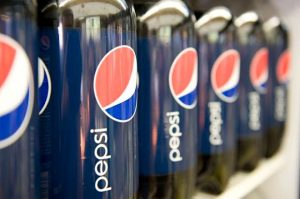Company Branding, Racism and The True Injustice Underpinning American Society
“Woke” America Is More Asleep to Injustice than Ever

To drive home just how superficial and empty recent protests in America are and how little besides further division and destruction will become of them – take the fate of two fictional characters recently put in the spotlight by baying activists – PepsiCo’s “Aunt Jemima” breakfast food brand and Mars Incorporated’s “Uncle Ben’s” rice products.
Both came into the crosshairs of “woke” America. Both fictional characters will now no longer be used.
It might appear like a huge victory for “woke” America.
CNN in their article, “The Aunt Jemima brand, acknowledging its racist past, will be retired,” would claim:
Quaker Oats is retiring the more than 130-year-old Aunt Jemima brand and logo, acknowledging its origins are based on a racial stereotype.
“As we work to make progress toward racial equality through several initiatives, we also must take a hard look at our portfolio of brands and ensure they reflect our values and meet our consumers’ expectations,” the Pepsi-owned company said in a statement provided to CNN Business.
And the London Guardian in their article, “Uncle Ben’s rice firm to scrap brand image of black farmer,” would claim:
The rice company Uncle Ben’s is to scrap the image of a black farmer the brand has used since the 1940s and could change its name, as companies react to growing concerns over racial bias and injustice.
The parent company, Mars, said Uncle Ben was a fictional character whose name was first used in 1946 as a reference to an African American Texan rice farmer.
While there is no doubt that both fictional characters represented stereotypes and are rooted in America’s racist past – “woke” America’s belief that somehow this was a priority or some form of victory begs belief. So does the fact that those opposed to expanding mobs and their “cancel culture” have crafted the most anemic counterpoints.
Some claim that the fictional characters were either inspired or portrayed by real African Americans who profited from the branding.
What neither side mentioned was the very real abuses both companies are guilty of – abuses that are both inhumane and rooted in extraordinary, inexcusable, and thus far utterly unaddressed racism.
PepsiCo and Mars Sponsor/Profit From Slavery and Mass Murder
Both “woke” America as well as those trying to form opposition to it have entirely missed the fact that PepsiCo and Mars Inc. – two multi-billion dollar businesses – are literally engage in modern day slavery to create their products while sponsoring policy think-tanks that have engineered wars targeting African nations, leading to the deaths of tens of thousands and open-air slave markets where black people – today – are sold into bondage.
This would seem to be a much greater transgression against black people than their crude depictions in company branding and demand much more serious action than merely adjusting marketing strategies – such as demanding boards of directors to resign or full-spectrum, permanent boycotts for these businesses and their many subsidiaries and brands.
Unfortunately for “woke” America, fictional characters are a priority taken head-on all while activists blissfully munch on chocolate bars made by cocoa harvested by African slave labor and sip on drinks made by a corporation who sponsors US wars abroad in which blacks are mass murdered and enslaved.
Your Mars Inc. Chocolate Comes from Slave Labor
If you enjoy chocolate snacks like 3 Musketeers, Snickers, Mars, and Milky Way bars, the chocolate you ate most likely came from a developing nation with dismal working conditions and in many cases, child and slave labor.
Mars Inc. along with Nestle, Hershey, and many other chocolate companies, source cocoa from Africa and specially the nations of Cote d’Ivoire and Ghana.
A Washington Post article published just last year titled, “Cocoa’s child laborers,” would note:
Mars, Nestlé and Hershey pledged nearly two decades ago to stop using cocoa harvested by children. Yet much of the chocolate you buy still starts with child labor.
The article elaborated, noting:
About two-thirds of the world’s cocoa supply comes from West Africa where, according to a 2015 U.S. Labor Department report, more than 2 million children were engaged in dangerous labor in cocoa-growing regions.
When asked this spring, representatives of some of the biggest and best-known brands — Hershey, Mars and Nestlé — could not guarantee that any of their chocolates were produced without child labor.
Black children used as labor and under conditions and for wages bordering slavery to produce cocoa Mars Inc. knowingly uses in its products – and makes billions of dollars off of – seems like a much bigger issue than what is undoubtedly offensive labelling practiced by Mars Inc. through its “Uncle Ben’s” brand.
Indicative of the carefully controlled nature of ongoing protests is how the Washington Post has reported on Mars Inc.’s genuinely offensive, even criminal predation on black labor in Africa in the past as well as Mars Inc.’s offensive branding more recently, but failed to link the two in its most recent reporting – thus artfully avoiding a genuinely “woke” readership and any genuine damage real protests and boycotts would have on Mars Inc. and other corporations whose interests Washington Post regularly serves as a voice for.
Big-Biz like PepsiCo and Mars Inc. are an Affront to All
Mars Inc. – alongside PepsiCo, Nestle, and Hersey – was also involved in funding anti-labelling campaigns to prevent legislation from passing that would force food manufacturers to inform consumers their products contained genetically modified organisms (GMO).
Corporations spending money to hide dangerous ingredients from consumers endangers everyone’s health – black and white, left and right.
Mars Inc., PepsiCo, and others defend such campaigning, claiming that such legislation would be “costly” – as would ensuring all of their ingredients are ethically procured and free of child and/or slave labor.
Yet Mars Inc., PepsiCo, and others are multi-billion dollar businesses. The Mars family which owns Mars Inc. consists mostly of family members who are billionaires – not mere millionaires – but billionaires.
Their daily “concerns” include ensuring their sprawling 82,000 acre ranches have enough water and that they receive the most lenient penalties when crashing their Porsche SUV’s into vans carrying families.
Mars Inc. and other multi-billion dollar businesses can afford to do better, simply at the cost of being slightly less well-off billionaires or perhaps even being demoted to millionaires – yet they simply and deliberately choose to profit off the backs of poorly informed consumers at home and exploited/enslaved labor abroad.
If what Mars Inc. and PepsiCo contributed too was only limited to cultivating ignorant consumers at home and using slave labor abroad it would be bad enough. And if America’s “woke revolution” was serious about justice, Mars Inc. and PepsiCo would be on the chopping block for much more than their crude, racist marketing, and would have more demanded of them.
But that is not all Mars Inc. and PepsiCo are contributing to.
Sponsoring Warmongering and Mass Murder in Africa (and everywhere else)
Both PepsiCo and Mars Inc. are sponsors of policy think tanks like the Brookings Institution whose “scholars” and “fellows” churn out the blueprints for US wars which are then rubber stamped by the US Congress and sold to the public by the corporate media.
Even as recently as Brooking Institution’s 2019 annual report (PDF) both companies – PepsiCo and Mars Inc. – are listed as sponsors as were both companies in 2011 (PDF).
Brookings and its corporate-sponsored staff worked diligently in 2011 to help sell the US military intervention in the North African nation of Libya. It was a key institution involved in creating and spreading the notion of “R2P” or the “responsibility to protect” used as flimsy cover for a long-planned US desire to effect regime change in Libya.
As early as February 2011, the Brookings Institution published articles and papers like, “United States Must Take Lead on Libya,” in which Brookings “Senior Fellows” – funded by the likes of PepsiCo and Mars Inc. – made the nascent calls for US military intervention that would eventually lead to the US arming militants openly and carrying out air strikes across the nation.
Indeed, the US armed militants in eastern Libya – a hotbed for racism and extremism and the epicenters of Al Qaeda in the country – as well as provided roving bands of armed gangs air support as they swept the nation.
When Libyan leader Muammar Qaddafi was violently swept from power later that year, the estimated 2.5 million Africans from across the continent he took in, providing housing and living wages to, found themselves being hunted by US-backed militants.
To explain the blatant and explosive racism that predictably swept Libya in the wake of the US-backed war, articles like the CS Monitor’s “How Qaddafi helped fuel fury toward Africans in Libya,” would claim:
Many experts – and African migrant workers themselves – say the animosity stems from anti-African racism found throughout the Arab world. But some say the anger has been made much worse by Mr. Qaddafi’s moves to buy the loyalty of black Libyans from the south of the country as well as his decades-long efforts to build Africa-wide patronage networks at great cost to the country’s Arab majority.
In other words – the CS Monitor and the Western “experts” it cited claim Qaddafi “fueled fury toward Africans” by merely spending resources to help them. It is an oblique attempt to justify the racism-driven genocide US-backed militants carried out during their “victory lap” in Libya.
Black Africans living in Libya were either driven out of the country, across the Mediterranean and into Europe to face hardship and racism there or either mass murdered in Libya or rounded up and enslaved.
The Western media – partners with institutions like Brookings – denied this at first – or attempted to excuse it like the CS Monitor – but eventually covered the fallout US military intervention in Libya and its long-planned regime change agenda triggered.
Reuters in their article, “African workers live in fear after Gaddafi overthrow,” would admit:
Tens of thousands of foreign workers have fled Libya since the armed revolt against Gaddafi’s 42-year-rule began in February, with Africans afraid they have become targets for fighters who accuse them of being mercenaries for Gaddafi.
This antipathy appears to have spread to all Africans, leaving them vulnerable to attacks, robbery and other abuse by the gun-toting, mostly young, fighters who ousted Gaddafi.
Identity cards of nationals from Chad, Niger, Mali, Sudan and other African states have been found on the bodies of gunmen who anti-Gaddafi fighters say were paid to confront them.
The BBC in its article, “Libya migrant ‘slave market’ footage sparks outrage,” would admit:
Migrants trying to reach Europe have spoken of being held by smugglers and forced to work for little or no money.
The footage released by CNN appears to show youths from Niger and other sub-Saharan countries being sold to buyers for about $400 (£300) at undisclosed locations in Libya.
While these media sources covered the fallout of the 2011 US military intervention, they were careful not to link the fallout directly to the intervention.
The US war against Libya was a humanitarian catastrophe deliberately engineered by Western think tanks funded by big-business like PepsiCo, Mars Inc., and many others, rubber stamped by politicians in Washington – both Democrat and Republican – and eagerly sold to the public by the corporate media.
And even as recently as 2016, Brookings “Senior Fellow” Shadi Hamid in a piece published on Brookings’ site titled, “Everyone says the Libya intervention was a failure. They’re wrong,” would remain insistent in defending the US-led war and the decimated, racist, and dysfunctional Libya left in its wake.
He argues that if the US didn’t intervene, Qaddafi would have successfully eliminated the racist extremists in eastern Libya and particularly in Benghazi who would eventually carry out genocide against Libya’s black population. Hamid simply omits any mention of this or who actually was based in Benghazi and instead refers to them merely as “protesters.”
Thus, PepsiCo and Mars Inc. – alongside oil corporations and weapons manufacturers – are funding an institution that not only engineers and eagerly promotes wars, they fund an institution that is utterly unapologetic about the calamity these wars cause – including wars like in Libya ending tragically for 2.5 million black Africans.
“Woke” America needs to be conscious enough to recognize the true injustice underpinning American society. It is very likely that as protesters in America and online around the globe rail against “Aunt Jemima” and “Uncle Ben’s” many activists are eagerly enjoying many of the other products produced by and profiting PepsiCo and Mars Inc. – oblivious to the fact that the ingredients are procured through child and slave labor in Africa and the profits are directed into promoting wars that leave blacks abroad dead, displaced, or enslaved.
And as long as this is the case, nothing of any genuine substance will ever change in America or across the wider Western World.
If real justice is what Americans – all Americans – want, they need to truly wake up to this fact first.
*
Note to readers: please click the share buttons above or below. Forward this article to your email lists. Crosspost on your blog site, internet forums. etc.
Tony Cartalucci is a Bangkok-based geopolitical researcher and writer, especially for the online magazine “New Eastern Outlook” where this article was originally published. He is a frequent contributor to Global Research.
All images in this article are from the author



